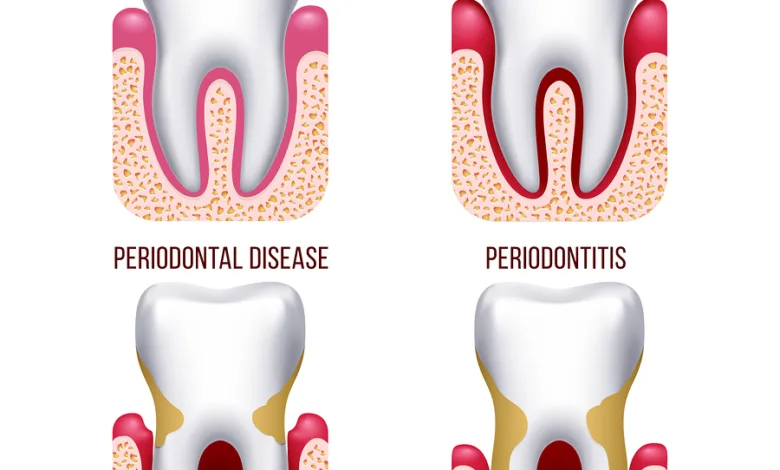Understanding Periodontology and Periodontal Diseases in the UK: A Comprehensive Overview

Periodontology, a specialized field within dentistry, focuses on the prevention, diagnosis, and treatment of diseases affecting the supporting structures of the teeth, primarily the gums and the bone surrounding the teeth. Periodontal diseases, ranging from gingivitis to advanced periodontitis, are prevalent in the UK, affecting millions of individuals and impacting their oral health and overall well-being. In this article, we delve into the intricacies of periodontology and periodontal diseases in the UK, exploring their prevalence, causes, consequences, and available treatments.
Prevalence of Periodontal Diseases in the UK:
Periodontal diseases are widespread in the UK, with a significant proportion of the population affected by various forms of gum disease. According to recent studies, approximately 45% of adults in the UK have mild to severe forms of periodontitis, highlighting the substantial burden of this condition on public health. Additionally, the prevalence of periodontal diseases tends to increase with age, making it a significant concern among the elderly population.
Causes and Risk Factors:
Several factors contribute to the development and progression of periodontal diseases. Poor oral hygiene, characterized by inadequate brushing and flossing, allows plaque—a sticky film containing bacteria—to accumulate along the gumline. Over time, plaque hardens into tartar, leading to inflammation of the gums (gingivitis) and, if left untreated, causing damage to the surrounding tissues and bone (periodontitis). Smoking, diabetes, genetic predisposition, hormonal changes, certain medications, and systemic conditions also increase the risk of developing periodontal diseases.
Consequences of Periodontal Diseases:
Untreated periodontal diseases can have far-reaching consequences beyond oral health. Advanced periodontitis can result in tooth loss, as the supporting bone deteriorates, leading to loosening and eventual shedding of teeth. Moreover, research has established a link between periodontal diseases and systemic conditions such as cardiovascular disease, diabetes, respiratory infections, and adverse pregnancy outcomes. The chronic inflammation associated with gum disease can exacerbate existing health conditions and compromise overall health and quality of life.
Diagnostic Techniques:
Early detection and diagnosis are crucial in managing periodontal diseases effectively. Dentists and periodontists employ various diagnostic techniques to assess the health of the gums and supporting structures. These include visual examination, probing of the periodontal pockets to measure pocket depth, dental X-rays to evaluate bone loss, and advanced imaging techniques such as cone-beam computed tomography (CBCT) for detailed assessment of the oral structures. These diagnostic tools enable clinicians to identify the extent and severity of periodontal diseases and formulate appropriate treatment plans.
Treatment Modalities:
The treatment of periodontal diseases aims to eliminate infection, control inflammation, and restore the health and function of the periodontal tissues. The choice of treatment modality depends on the severity of the disease and individual patient factors. Non-surgical interventions, such as scaling and root planing (deep cleaning), are typically the first line of treatment for mild to moderate periodontitis. This procedure involves removing plaque and tartar deposits from the tooth surfaces and smoothing the root surfaces to prevent bacterial reattachment.
In cases of advanced periodontitis where significant gum and bone loss has occurred, surgical interventions may be necessary to regenerate lost tissues and improve periodontal health. Surgical procedures such as flap surgery, bone grafting, guided tissue regeneration, and soft tissue grafting aim to reduce pocket depth, repair damaged bone, and enhance the aesthetics of the smile. Additionally, adjunctive therapies such as antimicrobial mouth rinses, locally administered antibiotics, and laser therapy may be employed to enhance treatment outcomes and prevent disease recurrence.
Maintenance and Prevention:
Effective maintenance and preventive measures are essential components of long-term periodontal care. Patients with a history of periodontal diseases require regular follow-up visits to monitor their oral health status, perform professional cleanings, and reinforce oral hygiene instructions. Good oral hygiene practices, including thorough brushing with a fluoride toothpaste, daily flossing or interdental cleaning, and regular dental check-ups, play a crucial role in preventing the recurrence of periodontal diseases and maintaining optimal oral health.
Conclusion:
Periodontology and periodontal diseases are significant concerns in the UK, affecting a considerable portion of the population and posing risks to oral and systemic health. Understanding the causes, consequences, and treatment options for periodontal diseases is essential for both patients and healthcare professionals. By emphasizing preventive measures, early detection, and appropriate interventions, individuals can mitigate the impact of periodontal diseases and preserve their oral health for years to come. Collaborative efforts between patients, dentists, and periodontists are instrumental in combating periodontal diseases and promoting overall well-being within the UK population.


